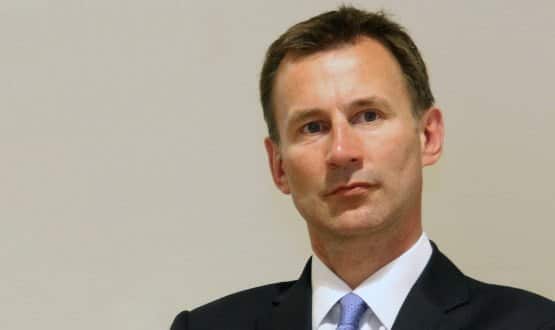In his first speech as the re-elected secretary of state, Jeremy Hunt has said retaining rights for EU workers, staff retention and mental health for those working in the NHS are his government’s priorities.
Alongside supporting staff being a central priority, Hunt told the NHS Confederation conference, Confed ’17 in Liverpool, that over the next 12 to 24 months, A&E performance, financial balance and transformation of mental health and patient safety were also immediate priorities.
Hunt described it as an early priority of the government to ensure rights of the 150,000 NHS workers.
“We need them and we want them to stay”, Hunt said, and described securing rights as being “about top of our list”.
Technology was not given much of a look in at the keynote speech, where Hunt was welcomed as the longest serving health secretary, but focus was on the NHS workforce.
Despite Hunt being traditionally an advocate for NHS IT, the only reference to electronic patient records came from an audience member querying the role of community pharmacists. Hunt says their role is changing to be “different and larger”, and referred to community pharmacists using EPRs, apps and electronic health records.
Hunt said he foresaw the use of an NHS 111 app that could direct patients to pharmacists.
Hunt said retention levels have fallen in recent years by about 2%, and that the NHS needs to respond to the flexibility wants of a modern workforce.
He also said that workers who had mental health conditions need to be supported in the NHS.
Hunt described the staff as achieving “mission impossible” and listed various achievements which have been achieved “despite all the pressures” with his thanks.
“Some people have felt it is mission impossible, when you take a look at the evidence you have actually been achieving mission impossible”.
However, it is “not about platitudes, this is about taking concrete action”, he added.
Hunt has come under heavy criticism for his role in the junior doctors contract over the last few years, and protesters were standing outside the ACC conference hall in Liverpool, to welcome the secretary of state.
When Niall Dickinson, chief executive of NHS Confederation, asked about motivation and pay, Hunt said that the “enormous amount of goodwill” given for free by NHS staff needs to be factored in.
The A&E 95% performance rate was said to be non-negotiable, and Hunt announced that Aintree and Knowsley and St Helens would be receiving a share of the £100 million capital funding for A&E.
The financial health of the NHS, which Hunt said was cut from £25 billion to £800 million, delayed the Five Year Forward View (FYFV). “Incredibly ambitious”, was how the FYFV was described, and with “full support of the government”.
Mental health was described as a “personal priority” of Hunt and prime minister, Theresa May, to deliver on the Conservative manifesto. The audience raised a chuckle when Hunt told them he expected the government to be in power until 2022.
Hunt described the above issues, alongside patient safety, as “immediate priorities but if we deliver them we get strategic gain”.
In his opening remarks to the crowd of NHS leaders, he said that his key to longevity in his job was not to look at social media, telling an anecdote about a punning piece of graffiti in his constituency.
Hunt remained as health secretary following the Cabinet reshuffle last week, triggered by the snap general election on 8 June.


20 June 2017 @ 19:53
‘Hunt said he foresaw the use of an NHS 111 app that could direct patients to pharmacists.’
And I can foresee the use of feet that will direct pateints to the Emergency Departmet to see a properly qualified doctor.
17 June 2017 @ 22:49
That’s right, ourNHS needs to retain front line staff and those that can change IT, ’cause BAU just ‘aint working (but please keep the developers app art:-)